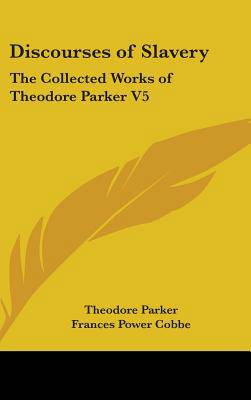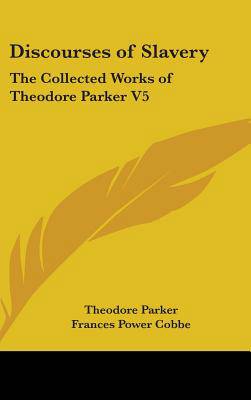
- Retrait gratuit dans votre magasin Club
- 7.000.000 titres dans notre catalogue
- Payer en toute sécurité
- Toujours un magasin près de chez vous
- Retrait gratuit dans votre magasin Club
- 7.000.0000 titres dans notre catalogue
- Payer en toute sécurité
- Toujours un magasin près de chez vous
Discourses of Slavery
The Collected Works of Theodore Parker V5
Theodore Parker
Livre relié | Anglais
46,45 €
+ 92 points
Description
Discourses of Slavery: The Collected Works of Theodore Parker V5 is a book that compiles the writings and speeches of Theodore Parker, a 19th-century American abolitionist and theologian. The book focuses on Parker's thoughts and opinions on the issue of slavery in America, and includes his most notable speeches and essays on the topic. The collection is divided into several sections, each of which explores a different aspect of slavery, such as its moral implications, its effects on society, and the political and economic factors that perpetuate it. Throughout the book, Parker argues passionately for the abolition of slavery and the full recognition of the rights and dignity of all human beings. The book provides valuable insight into the anti-slavery movement of the mid-19th century and the intellectual and moral debates that shaped it. It is a must-read for anyone interested in the history of slavery in America and the struggle for civil rights and social justice.1863. Part Five of Fourteen. Containing His Theological, Polemical, and Critical Writings, Sermons, Speeches, and Addresses, and Literary Miscellanies. Theodore Parker was a preacher, lecturer, and writer, a public intellectual, and a religious and social reformer. He played a major role in moving Unitarianism away from being a Bible-based faith, and he established a precedent for clerical activism that has inspired generations of liberal religious leaders. Although ranked with William Ellery Channing as the most important and influential Unitarian minister of the nineteenth century, he was an extremely controversial figure (he was active in the antislavery movement) in his own day and his legacy to Unitarian Universalism remains contested. Contents: Sermon of Slavery; Letter touching the matter of Slavery; Speech on the Abolition of Slavery by the French Republic; Speech at Faneuil Hall before the New England Anti-slavery Convention, May 31, 1848; Speech in Boston, May 29, 1850, on Slave Power in America; The Function of Conscience in Relation to the Laws of Men; Speech at the Ministerial Conference at Boston, May 29, 1851; On the Boston Kidnapping; On the Law of God and the Statutes of Men; Thoughts on the Nebraska Question; and Address on the Condition of America. See other titles by this author available from Kessinger Publishing.This scarce antiquarian book is a facsimile reprint of the old original and may contain some imperfections such as library marks and notations. Because we believe this work is culturally important, we have made it available as part of our commitment for protecting, preserving, and promoting the world's literature in affordable, high quality, modern editions, that are true to their original work.
Spécifications
Parties prenantes
- Auteur(s) :
- Editeur:
Contenu
- Nombre de pages :
- 340
- Langue:
- Anglais
Caractéristiques
- EAN:
- 9780548035276
- Date de parution :
- 25-07-07
- Format:
- Livre relié
- Format numérique:
- Genaaid
- Dimensions :
- 152 mm x 229 mm
- Poids :
- 666 g

Les avis
Nous publions uniquement les avis qui respectent les conditions requises. Consultez nos conditions pour les avis.






